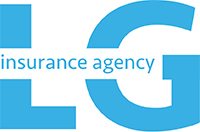EPLI insurance, ADA, and Discrimination
When discussing the importance of EPLI insurance, ADA, and discrimination, it is important to understanding the meaning of the terms, to better understand how to deal with discriminatory cases, lawsuits, and settlements. EPLI is an abbreviation for employment practices, liability, and insurance. This is a form of policy that is designed to protect employers of all sizes from their employees, individuals who apply to their jobs, and even third party groups from issues relating to discrimination, harrassment, wage decisions, hourly-based disputes, noncompliance conflicts, and ADA related issues. The ADA refers to the Americans with Disabilities Act, which was put in place in the 1990’s to decrease discrimination towards individuals who have a physical or mental disability. ADA website lawsuits, ADA lawsuit damages, ADA class action lawsuits, and actions taken to fight ADA lawsuits will be discussed throughout this article, through the context of EPLI strategies and resources.
What is the process when dealing with a lawsuit if you are covered by EPLI?
There are many benefits to being covered by EPLI, and it is important to understand all the details. These details are inclusive of revenues, the number of employees based on location and industry, and lastly, the insurance companies that are involved, as their policies are relevant to the cases. Naturally there are going to be both defense and claim costs, as well as input from the ADA. If there is an accident or an incident where a disabled person is unable to carry out a task or becomes harmed doing a job, as a result of a preventable barrier, this situation represents the concept of third party involvement.
As an example, if a customer comes into a restaurant in a wheelchair, but is unable to fit into the bathroom stall, or if the individual injures themself attempting to get to the stall without the wheelchair, due to the barrier, then the use of EPLI strategies would take the situation into consideration and look at all the “what if” possibilities, as well as any past events that could have been similar at the establishment or that could have prevented this situation from occurring. Evidence in key in EPLI practices, incase of any similar incidents that may contribute to evidence in the future as well. In the end, the individual’s knowledge will be tested regarding their policy and knowledge of any evidence that comes from the case.
EPLI provides help to individuals beyond disability discrimination, as it is inclusive of any kind of breach on civil or human rights, dealing with injuries, promotions, payments, and forms of harrassment. These pertain to disability settlements and discrimination cases, many of which can be won with an adequate use of EPLI strategies.
How does accessibility to the business or building come in to play in regards to ADA?
Policies are not designed to necessarily protect against the ADA, as employees themselves invest in the ADA. However, the ADA is able to assist in covering both discrimination and harrassment from the side of the third party if a powerful policy is in place.
Can you get sued for accessibility and discrimination if your building is up to code?
It is possible to still be sued for accessibility and discrimination if the buiilding is up to code, because, if an individual is unable to access the place business for any reason, and this creates sentiments of discrimination, then this individual has every right to file a lawsuit.
How do settlements work when you have EPLI?
EPLI practices are able to facilitate a settlement that can save a business in even the worst of circumstances. A recent ADA case occurred where an older man was not able to access a restaurant due to the entrance being too small to fit his wheelchair. After the claim was filed, the situation was instantly settled with money due to EPLI, and the aspects of hospitality, construction, and property risk were even taken into consideration.
Although the employee or employer can be a victim of harassment, discrimination, and liabilities from third parties, they must also protect themselves from claims, as there are issues around hiring, firing, and ADA involvement, as a result of filed claimed.
How do settlements go if you do not have EPLI?
Without EPLI, it is possible to have false claims made against employees, employers, and businesses regarding cases dealing with discrimination and harrassment, but even more so, it is difficult to find the grey area that exists in fighting these cases. EPLI essentially ensures that a discrimination or harassment claim is fair. Without this a business will face costly claims.
Oftentimes incidents occur without knowledge or by accident. Issues like improper discipline, demonotion, termination, a lack of promotion, or a failure to hire, may seem justifiable in the eyes of an employer, but could be misinterpreted on the other end as a form of discrimination. EPLI helps to understand the underlying social and institutional factors, while also sorting out any issues regarding fees.
Discrimination based on age, sexuality, race, or any form of slander and innapropriate invasion of privacy, which can all lead to emotional distress, are all discretionary and require a full investigation on the social dynamic of the workers, a look at their ideological beliefs, as well as any history of these actions or experiences, to best understand the situation. These conflicts do need to be taken seriously, as discrimination and harrassment are serious accusations, and because these incidents do happen very often. However, it is important that each party feels as if they are walking away with justice and an understanding of how their actions may impact one another, both socially and financially.
ADA lawsuit damages and ADA class action lawsuits are inevitable, and without EPLI, there is no mediator nor learning outcome, which would positively impact and prepare the business or individuals, as well as the third parties, for future interactions in public establishments. EPLI coverage is inclusive of legal defense fees, settlement costs, and damages, all based on the set policy limit, which protects an individual, whether they win, lose, or settle. This is a deal that is so useful, it could save a business from completely being destroyed, and give justice to a vulnerable individual.


